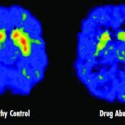Binge drinking injures 500,000 annually
The habit of college students to over-indulge is no youthful prank, say health experts
Universities and colleges are “missing the mark” in their fight against binge drinking on campus, which a new study says leads to 500,000 injuries in one year in the U.S. alone.
The research suggests that blanket efforts, such as cutting down on drink specials at campus pubs, may not be enough to curb consumption or prevent alcohol-related injuries. Universities have to pinpoint the students who are most at risk and perform some basic interventions with them, said one of the study’s authors.
Despite some efforts, drinking on campus has remained a problem. An estimated 500,000 college students in the United States suffered alcohol-related injuries in 2001 according to Marlon P. Mundt, assistant scientist in the department of family medicine at the University of Wisconsin-Madison and co-author for the study.
“About 2.8 million college students in the U.S. drove while under the influence within the past 12 months,” he said.
Mundt said his study demonstrates university administrations and student associations shouldn’t focus their efforts solely on trying to make students drink less; frequency of consumption and an individual’s sensation-seeking disposition — whether their behaviour is conservative or very adventurous — have to be considered alongside the quantity consumed when assessing the potential for injury, he said.
“There’s a particular subset of students who are very likely to suffer alcohol-related injuries,” Mundt said. “If we’re going to focus efforts on reducing injuries, we have to recognize that this subset of heavy frequent drinkers with a high sensation-seeking disposition is really putting themselves at high risk.”
Mundt and his colleagues found that students who compound the risks of frequent drinking with those of heavy drinking are at the highest risk of injury. Thirty to 40% of students who are considered frequent, heavy drinkers are getting injured, the data suggests. The study considers four days of heavy drinking — eight or more drinks for men, five or more drinks for women — per month as frequent, heavy drinking. Students who fall into this category are five times more likely to be injured than those who don’t.
A Statistics Canada report from 2008 shows beer is the alcoholic beverage of choice for Canadians aged 19 to 30. On any given day, a little more than a quarter of men in that group drink beer, consuming an average a little more than three beers per day. The same report shows, on any given day, 5% of women in that age group drink beer. Their average consumption is about two bottles per day.
The Canadian Centre on Substance Abuse found in 2004 almost one-third of Canadian undergraduate students reported heavy pattern drinking, with 16.1% reporting heavy, frequent drinking — characterized by an habitual consumption of more than five drinks per day, and weekly drinking.
Canadian university representatives have acknowledged there are some issues on their campuses but they say they are working on them.
The University of British Columbia’s student union said it doesn’t consider irresponsible drinking a significant problem on its campus.
“We realize there can always be issues with students drinking responsibly,” said UBC student union executive Johannes Rebane, “but we are very proactive in educating students about drinking responsibly.”
The University of Toronto offers various services to students who want help with or to learn about alcohol consumption, said media relations officer Joyann Callender.
Although these are examples of blanket-scale actions universities should be taking, Mundt said, these efforts won’t have enough of an effect on those who are the most at risk.
“It’s not a benign activity, this level of drinking,” said Mundt. “It’s leading to injuries on a regular basis.”
source: Canwest News
